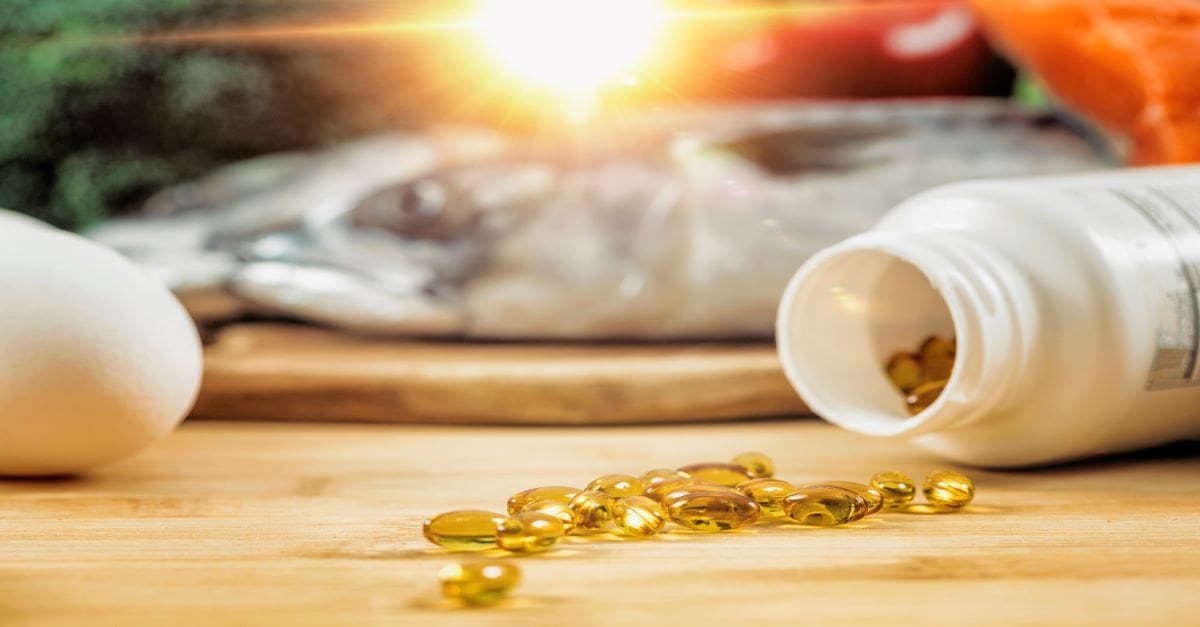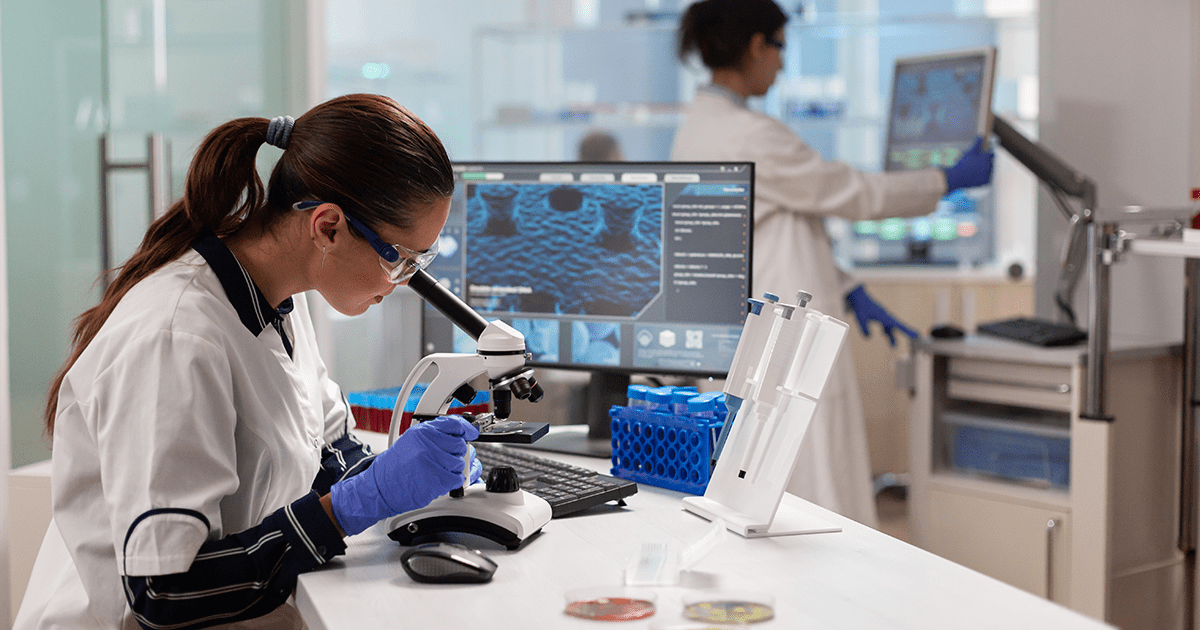If you ask someone why their body needs vitamin D, you will most likely hear “for healthy bones” or “to prevent osteoporosis.” Avid vitamin and supplement users may even inform you that increasing your intake of vitamin D reduces the risk of cancer and other diseases and prevents infection. And many scientists have supported those claims. However, new research casting doubt on the benefits of vitamin D supplementation is sparking a debate on whether healthy Americans should bother being tested for vitamin D deficiency or taking a supplement.
What is vitamin D and why do you need it?
Vitamin D is a fat-soluble vitamin that is naturally present in some foods and is produced endogenously when ultraviolet rays from sunlight strike the skin. It is a critical nutrient for building and maintaining healthy bones. The human body can only absorb calcium and phosphorus, the primary components of bone, when vitamin D is present.
Some research studies over the last 50 years have suggested that vitamin D may also reduce the risk of multiple sclerosis, decrease the chance of heart disease, reduce the severity of flu and COVID-19 infections, support immune health, regulate mood, reduce depression, and even support weight loss.
How does your body get vitamin D?
The Recommended Dietary Allowance (RDA) for adults is 600 IU, or 15mcg. The recommendation increases to 800 IU, or 20 mcg, for adults over 70. According to the US Department of Agriculture, the following foods are vitamin D-rich and, when consumed as part of a healthy diet, allow adults to reach their desired daily vitamin D level, without the need for supplemental doses. Please note, this list does not include all foods containing vitamin D or foods fortified with vitamin D.
| Food Source | Vitamin D (IU) |
| Freshwater rainbow trout, three ounces | 645 |
| Salmon, three ounces | 383-570 |
| Tuna (canned), three ounces | 231 |
| Low-fat milk (1%), one cup | 117 |
| Plain nonfat or low-fat yogurt, eight ounces | 116 |
| Mushrooms, one cup | 114-1,110 |
| 100% fortified orange juice, one cup | 100 |
Simply exposing your skin to the sun can also produce the recommended vitamin D allowance. Your geographic location, time of day, level of melanin, and age can impact the amount of vitamin D your body produces when exposed to the sun, but research conducted in the UK concluded that just 13 minutes of midday sunlight exposure to 35% of the skin’s surface area a few times per week will provide Caucasian adults with a healthy level of vitamin D.1
But vitamin D is also a commercially produced supplement projected to be valued at $1.3 billion by 2025.2 Reuters Health3 reports nearly one in five US adults take supplemental vitamin D, and nearly half of all American adults take a multi-vitamin supplement that contains vitamin D.4 Supplemental dosage can vary among vitamin users, with some taking three to 10 times the RDA.
According to research published in the National Institutes of Health database, approximately 40 percent of the US population is vitamin D deficient.5 While there are differing opinions amongst scientists as to the level of 25-hydroxyvitamin D that constitutes a deficiency, most attribute deficiency to the decline in the quality of the American diet and the long-term risks of skin cancer due to sun exposure prompting people to spend less time outdoors.
The largest Vitamin D study
Meryl LeBoff, MD, chief of the Calcium and Bone Section in the Endocrine Division at Brigham and Women’s Hospital and professor of medicine at Harvard Medical School, led the largest vitamin D randomized controlled trial ever conducted. The five-year study included over 25,000 participants, including healthy men 50 years and older and healthy women 55 and older from all 50 states. Twenty percent of the participants were black, a group among which vitamin D deficiency is more common.
The trial aimed to determine whether 2,000 IU/day of supplemental vitamin D would result in a lower risk of fractures than placebo among generally healthy middle-aged and older Americans. Participants were not selected based on whether they had vitamin D deficiency, low bone mass, osteoporosis, or other bone health issues.
The results, published in the New England Journal of Medicine in July 20226, showed that supplemental vitamin D without co-administered calcium did not result in a significantly lower risk of fractures than a placebo, suggesting that generally healthy adults may see no benefit in taking the supplement for the purpose of bone health.
Several editorial letters that accompanied the findings touched upon vitamin D supplementation’s effects on preventing cancer. Dr. Richard Rosen noted that the study failed to address research about vitamin D supplementation helping to prevent autoimmune diseases and advanced cancers, while Dr. Clifford Rosen attempts to refute those claims. This difference of opinion highlights the current contentious state of vitamin research.
Other recent Vitamin D studies
A review and meta-analysis of participant data from three other randomized clinical trials across three countries studying the effects of increased vitamin D supplements was published in the Annals of Internal Medicine in February 2023.7 In the collective studies, participants with prediabetes were given 4,000 IU/day of vitamin D versus placebo to determine if the supplement would reduce the risk of developing type 2 diabetes. The results showed that vitamin D supplementation could reduce the risk of developing type 2 diabetes by 15%. When compared to a 2002 study8 that showed intensive lifestyle modification could lower the risk of developing diabetes by 58%, it’s possible both lifestyle changes may have positive impacts on diabetes prevention.
A team of researchers led by Adrian Martineau, Clinical Professor of Respiratory Infection and Immunity at Queen Mary University of London, reviewed the results of 20 randomized controlled trials in the last seven years that suggested vitamin D could reduce the risk of asthma attacks. The team found that vitamin D supplements had no effect on the risk of asthma attacks or on the control of asthma symptoms in children or adults compared with a placebo. No differences were noted in those participants who were vitamin D deficient or given different doses. Similarly, age didn’t seem to be a defining factor either.9
For individuals with health issues such as osteoporosis, supplementation of vitamin D with calcium has been shown in many studies to have positive benefits.5
Additional vitamin research needed
It’s not just the effectiveness of vitamin D that has come under debate lately, but multivitamins in general. Researchers at Johns Hopkins reviewed three recent studies of multivitamin use and in an editorial concluded that multivitamins “are ineffective for preventing mortality or morbidity due to major chronic diseases.”10
Of course, there are exceptions to the supplement debate. For example, folic acid can prevent neural tube defects in babies when taken before and during early pregnancy. The Centers for Disease Control and Prevention recommends that women of child-bearing potential get 400 micrograms of folic acid per day.11
Considering the conflicting research and the increased focus on personalized care, everyone must make the decision, with consultation from their physician, if vitamin supplements of any kind are right for them. Clinical trials and scientific research will continue to substantiate or disprove claims regarding the viability of vitamin supplements.
LabLynx LIMS for clinical research and nutraceutical labs
For clinical research and nutraceutical laboratories in need of improving their sample processes and data management, LabLynx offers a laboratory information management system (LIMS) designed especially for our research and nutraceutical lab partners. Visit lablynx.com or contact [email protected] for more information on how the LabLynx ELab LIMS software can meet your compliance needs with document management, read-only audit trails, and more!
References
1 https://pubmed.ncbi.nlm.nih.gov/20072137/
2 https://www.mordorintelligence.com/industry-reports/united-states-vitamin-d-supplement-market-growth-trends-and-forecast
3 https://www.reuters.com/article/us-health-vitamind-supplements/many-americans-taking-too-much-vitamin-d-idUSKBN19B2F0
4 https://www.cdc.gov/nchs/products/databriefs/db399.htm
5 https://pubmed.ncbi.nlm.nih.gov/21310306/
6 https://www.nejm.org/doi/full/10.1056/NEJMoa2202106
7 https://www.acpjournals.org/doi/10.7326/M22-3018
8 https://pubmed.ncbi.nlm.nih.gov/11832527/
9 https://www.cochranelibrary.com/cdsr/doi/10.1002/14651858.CD011511.pub3/full
10 https://pubmed.ncbi.nlm.nih.gov/24490268/
11 https://www.cdc.gov/ncbddd/folicacid/recommendations.html





